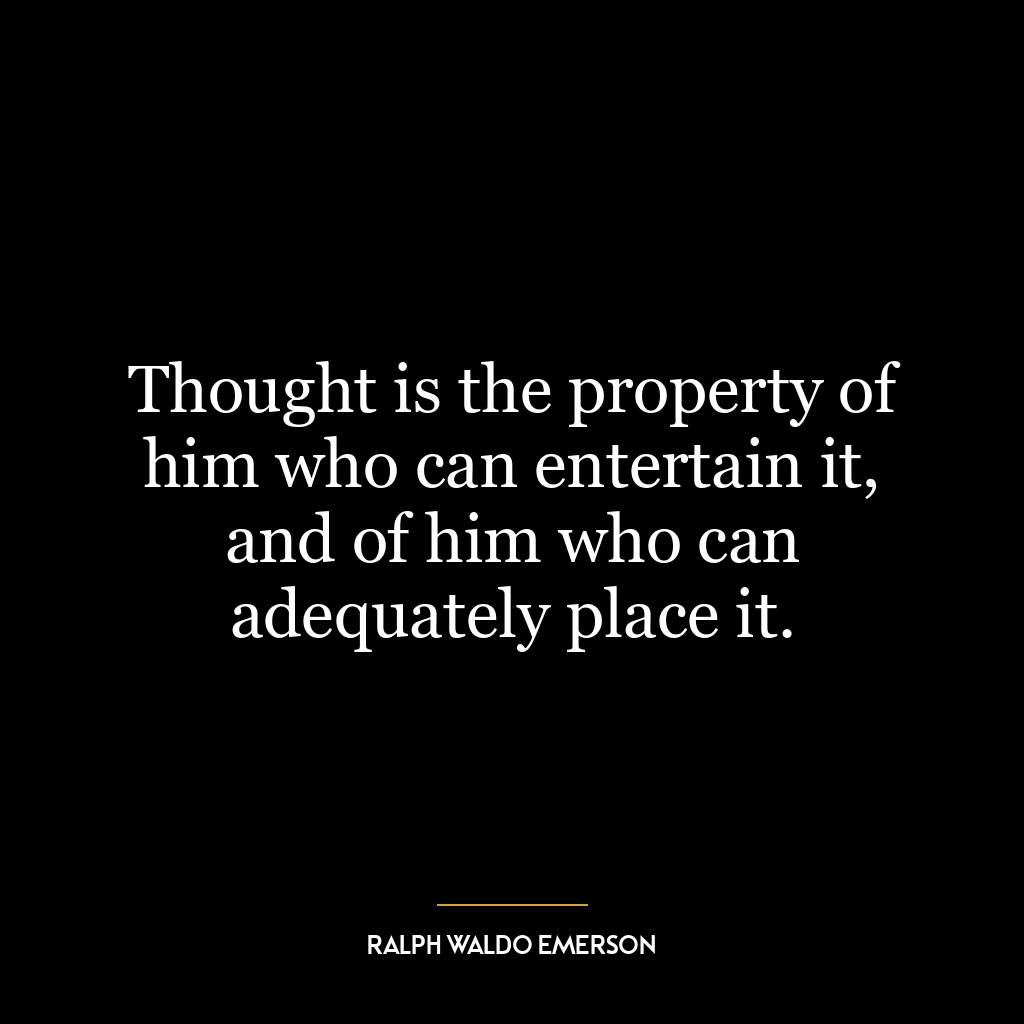this quote by Ralph Waldo Emerson implies that the ownership of a thought is not exclusive to the person who originally conceived it, but also extends to anyone who can understand, entertain, adn appropriately apply or express it.
The first part of the quote, “Thought is the property of him who can entertain it,” suggests that thoughts are not static entities confined within one person’s mind.Rather, they become shared commodities when others are able to comprehend and engage with them.This emphasizes the communal nature of ideas and knowledge; once a thought has been expressed or shared in some form, it becomes part of a collective pool from which anyone can draw.
The second part of Emerson’s statement,”and of him who can adequately place it,” adds another dimension to this concept.It suggests that true ownership over a thought doesn’t just come from understanding or entertaining it but also from being able to effectively utilize or position that idea in an appropriate context.
In today’s world where data and ideas are constantly being exchanged through various platforms like social media and academic journals, this quote holds notable relevance. We often see peopel sharing thoughts or ideas they’ve heard elsewhere without necessarily understanding their depth or knowing how to use them effectively. According to Emerson’s perspective, such people do not truly ‘own’ these thoughts.In terms of personal progress too, this quote provides valuable insight. It encourages us not only to absorb new information passively but also actively engage with these ideas until we fully understand them and know how best they might be applied in our own lives. Simply put: don’t just collect knowledge – truly comprehend and learn how to use it effectively.
So whether you’re consuming media content online or learning new concepts for personal growth – remember: true intellectual ownership comes from deep understanding coupled with thoughtful request.















